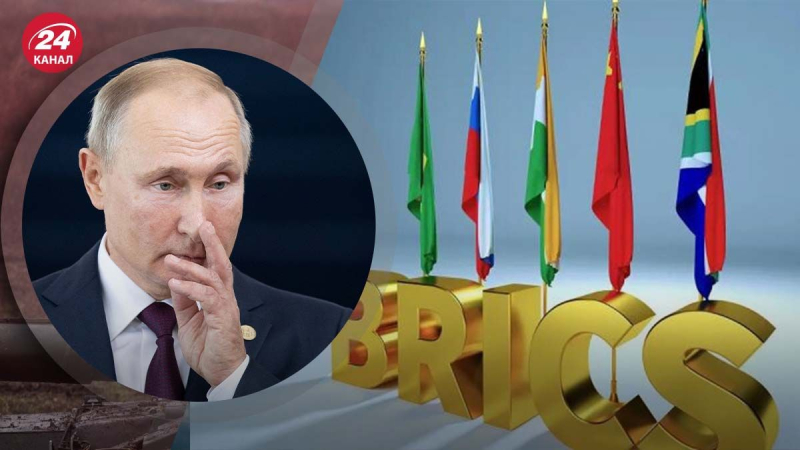Putin's influence or self-interest: why several countries have expressed a desire to join BRICS Angela Figin BRICS continues to expand. Recently, Azerbaijan and Turkey applied to join the international economic union. At the same time, pro-Russian forces in Bulgaria suddenly declared that it was worthwhile to remove the country from the influence of the European Union and join BRICS. In a conversation with 24 Channel political scientist Oleg Saakyan assessed the actions and statements of countries that expressed a desire to join the BRICS group of countries. Let us recall that Iran, Egypt, Ethiopia, the United Arab Emirates and Saudi Arabia joined the union in January. Such statements by Bulgaria are nothing more than flirting with anti-Brussels and pro-Russian sentiments, which are quite strong. According to the political scientist, there is nothing serious behind this. Bulgaria will not leave the European Union, because for it it will be a socio-economic catastrophe. Azerbaijan applied two days after Vladimir Putin's visit. Apparently, they played because Armenia said that it was not on the same path with Russia and Putin decided to quickly change the game. Turkey has a trade goal. For them, it is a logistics corridor and a link to the Turkic world. However, there is no need to differentiate between the foreign policy positions of Turkey and Azerbaijan, since they are often coordinated. By the way, political scientist Maxim Dzhigun believes that Recep Erdogan's desire to join BRICS is a signal to Western countries that have failed to maintain Turkey's desire to move towards integration with the EU. The political scientist explained whether the G7 is really losing its positions, since if you count the capital of the countries included in BRICS, they have become larger. I would not say that the G7 is losing its positions, because this is a different nature of the organization. The BRICS counterweight is still not working, – noted Sahakyan. The G7 is a political association of countries that are united by values and on the basis of a common understanding of the world order. Therefore, the current world order is often criticized for being Western-oriented – created in the West for the world. The G7 brings together countries that are interested in maintaining a world order based on international law, liberal values, openness, and the like. The economy is a secondary feature of their unification. Their weight and influence are partly based on the economy, but this is not what unites them, – the political scientist emphasized. BRICS is a purely geo-economic organization, the political one has not worked there. The countries are not united by values, politics, or ideas about the future of the world. They are incapable of making consensus decisions on acute or complex political issues. This is a very heterogeneous organization. The more it grows, the larger it will look on the surface, the larger the market, but in terms of decision-making capabilities, it will degrade, – added Saakyan. China has long since taken over leadership in BRICS from Russia. Today, this is a Chinese project, not a Russian one. Therefore, they decided that a political union with BRICS is not working out and, accordingly, they will make it exclusively a trade one. The change in approach and paradigm, for the sake of which this union will exist, led to the fact that a number of countries decided to join.
What are the motives of countries to join BRICS
Does BRICS represent competition for the G7
Putin's Influence or Self-Interest: Why Several Countries Have Expressed Interest in Joining BRICS
42
previous post

